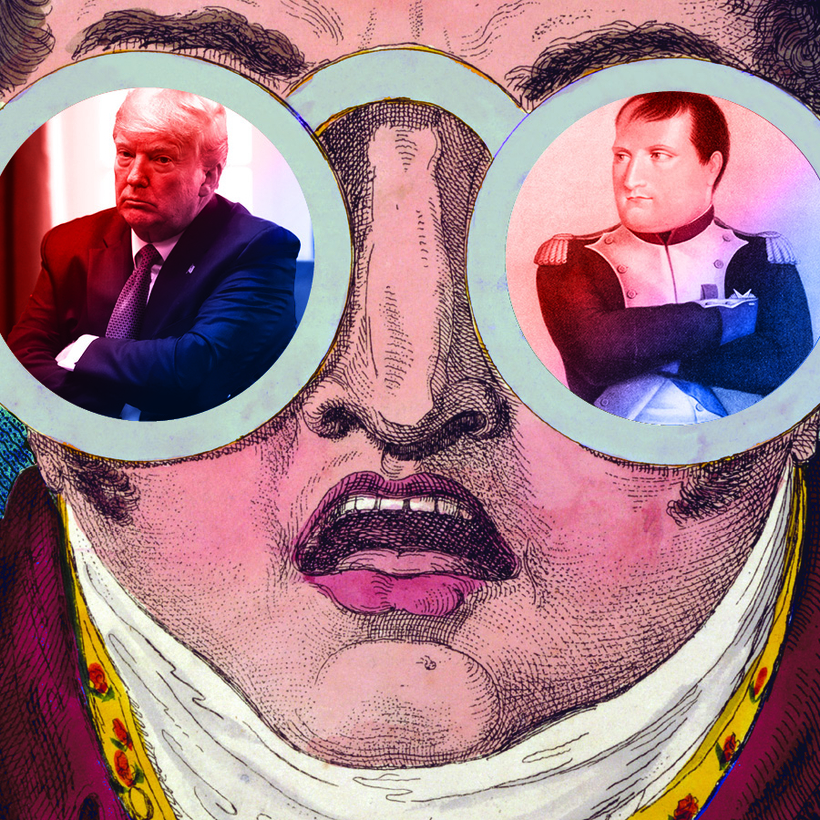There are two certainties about our future: almost all of us will be poorer, and the deadliest canker threatening many people will be self-pity. We all succumb sometimes, but it will be a yardstick of courage, among society’s “haves,” to resist feeling sorry for ourselves.
It helps to know some past, which is where historians such as me spend our working lives. I study the great upheavals of the 20th century, but others live with the Roman Empire, the Middle Ages, and so forth.
Knowledge imposes a lockdown on nostalgia. We historians learn so much about the horrors of our ancestors’ lives that we understand our good fortune in inhabiting the present. Barbara Tuchman entitled her monumental 1978 work A Distant Mirror: The Calamitous 14th Century, and calamitous it was indeed for Europeans, beset by violence and disease. Such miseries were rewound in the 17th century, era of the Thirty Years’ War.
Marching onward, it remains extraordinary that the French nation continues to idolize Napoleon Bonaparte, whose 1812 Russian campaign alone cost the lives of more than 400,000 of his own men, almost as many fatalities as Britain and the U.S. each suffered in World War II.
Ah, yes, World War II. Few episodes in my experience as a writer have made a more powerful impact on my view of life than one which began 20 years ago, in Delaware. I interviewed a woman named Dorothy Beavers, who served as a U.S. Army nurse in Europe from 1944 to 1945. She described how, after the war ended, she cared for a group of Hungarian Jewish girls at the former Ebensee concentration camp, in Austria.
She befriended one, a young woman named Edith Gabor. Almost all of her wealthy Budapest family had perished. One day a Life-magazine photographer came to the camp, whose snapping caused Edith to collapse into sobs. She stood despairing against the perimeter wire, while Lieutenant Beavers sought to comfort her.
“Look at me,” said the emaciated girl, her body a mass of ulcers. “I’m 20 years old and no man will ever want me.” Deeply moved by the story, I said, “I wonder what happened to that girl?” The former nurse said, “She lives in Queens, New York.”
Knowledge imposes a lockdown on nostalgia. We historians learn so much about the horrors of our ancestors’ lives that we understand our good fortune in inhabiting the present.
A week later, my wife, who is also Jewish, and I spent four hours with Edith Gabor, who had made a pretty good life in America, married, though she never had children. She was a wonderfully funny, supercharged woman who described her experiences in four Nazi camps.
Afterward, we were due to fly to London, and I had booked a taxi to take us to J.F.K. The cab did not come. After 20 minutes, standing on the sidewalk with our bags, I began to jump up and down with frustration and fury. I said, “If this cab does not arrive, we shall miss the plane.”
Short, chunky Edith, standing beside me, leaned back and gave my outburst an extravagant, mocking East European horselaugh. “Relax!” she said. “Take it easy! It’s not important. When you’ve been in a death camp, you get to see that missing an airplane really doesn’t count for much!”
I felt humbled then, and remain so to this day, by my preoccupation with the trivia of 21st-century life in the company of a woman who could still laugh prodigiously, after experiencing stuff beyond the imaginations of most of us. Edith is now long dead, but I have never forgotten the lesson in life that she gave me.
It would nonetheless be foolish not to concede that most of us can judge our predicaments in sickness or health, riches or poverty, overwhelmingly in the context of that which we are accustomed to. Amid a global pandemic it is hard to leap for joy that we are not inmates of the Ebensee concentration camp.
My daughter, when she was a teenager, made a remark that seemed, in its way, as significant as that of Edith Gabor. “Daddy, life is what you are used to,” she said. This will be the principal obstacle to our adjustment to the post-coronavirus world.
For several generations, we have taken for granted relative if not absolute wealth and security, buoyed by a confidence that tomorrow will prove better for us than today. This upward trajectory is now, for a longish season, forfeit.
Yet, for society’s haves to keep our sanity, never mind our decency, it seems essential that we should daily recite to each other the mantra: If we retain a subsistence ration of health, love, money, we are still in a vastly better place than most inhabitants of this planet.
We must focus our compassion on society’s less fortunate. They are about to lose far more than anybody reading this. Nothing likely to befall us will compare with the hardships of past generations who had to fight wars; endure years of separations and privations; in some cases, face outright starvation.
Whatever befalls Western societies in the coming months and years, we shall retain our claims to rank among the most privileged peoples in history. We shall be diminished if we squander on ourselves a sympathy that rightfully belongs to billions of others.
Max Hastings, a journalist and historian, is the author of many books, most recently Vietnam: An Epic Tragedy, 1945–1975


